Finding the best food for your Akbash puppy isn’t always straightforward. Making homemade food lets you pick fresh, simple ingredients that support healthy growth and energy. You can also skip fillers or stuff that might upset your pup’s stomach.
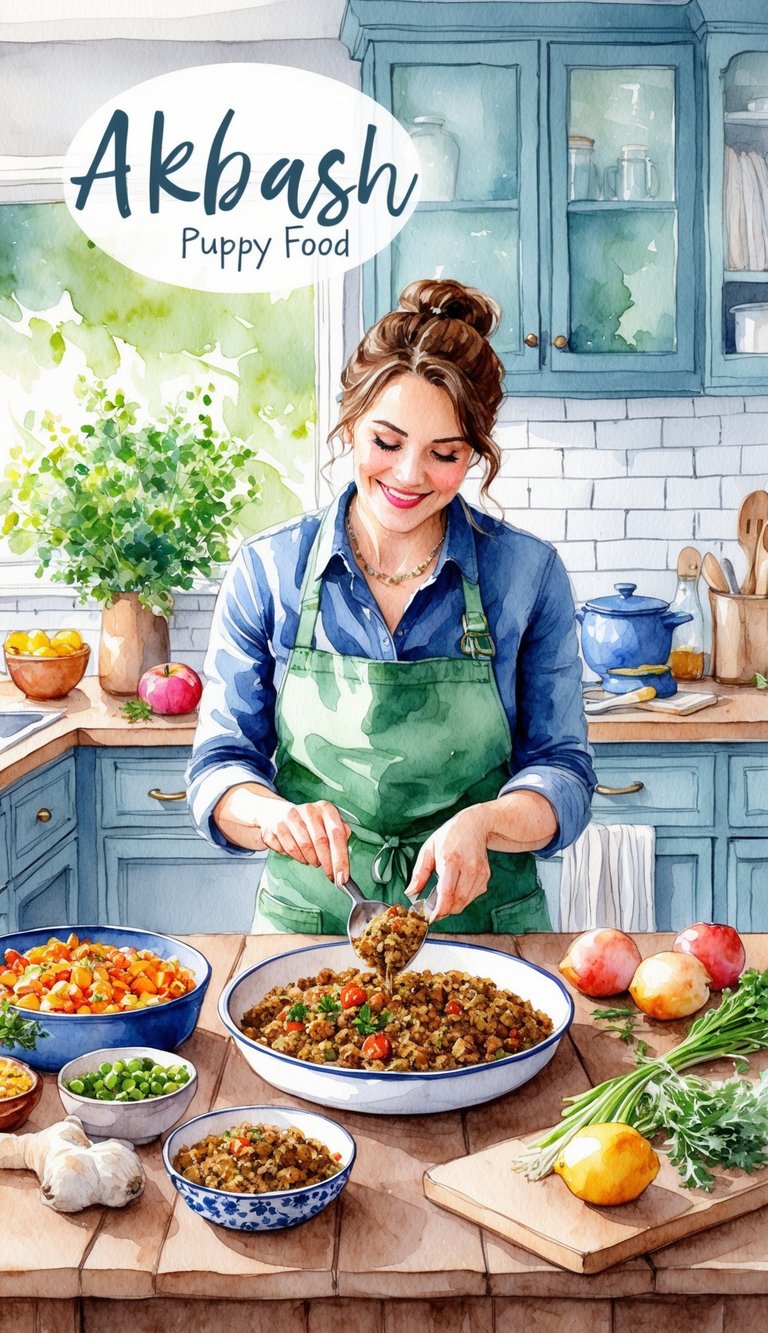
It’s normal to feel a bit lost at first, but making meals at home for your Akbash puppy doesn’t have to be overwhelming. You just need to know what nutrients your puppy needs and how to put together balanced meals.
This guide aims to help you make safe and healthy choices for your pet.
Nutritional Requirements for Akbash Puppies
Akbash puppies need the right balance of nutrients for fast growth, strong bones, and healthy digestion. If you want to feed homemade food, you’ll need to plan carefully to hit the right levels of protein, fats, vitamins, and minerals.
Macronutrients for Healthy Growth
Your Akbash puppy needs a diet rich in protein. Shoot for at least 22-24% protein in meals to help with muscle and tissue growth.
Good protein sources include chicken, turkey, beef, and eggs.
Fat matters too, but not in excess. About 8-10% fat gives your puppy energy without causing unwanted weight gain.
Healthy fat sources are fish oil and olive oil. Fats also make food tastier and help with a shiny coat.
Carbohydrates like brown rice, oats, or sweet potatoes give energy and are gentle on sensitive stomachs. Skip high amounts of corn or soy, since those can mess with digestion.
Essential Vitamins and Minerals
Akbash puppies need the right amount of calcium and phosphorus for strong bones and teeth. The ideal calcium-to-phosphorus ratio is about 1.2:1.
Vitamins like vitamin E keep your puppy’s immune system working and skin healthy. Fresh veggies like spinach or carrots offer vitamins A and C, and a bit of liver gives vitamin D.
Key minerals—zinc, iron, and magnesium—support growth, blood health, and metabolism. If you’re not sure your recipe covers everything, adding a dog-safe mineral supplement helps.
Special Needs of Large Breed Puppies
Large-breed puppies, like Akbash, grow fast but shouldn’t grow too fast. Too-rapid growth can cause bone and joint issues later.
Carefully control calories, calcium, and phosphorus. Split daily food into three or four meals to help prevent digestive problems and lower the risk of bloat.
Smaller, frequent meals are easier on sensitive stomachs. Always check with your vet before making big changes to your puppy’s diet.
Benefits of Homemade Akbash Puppy Food
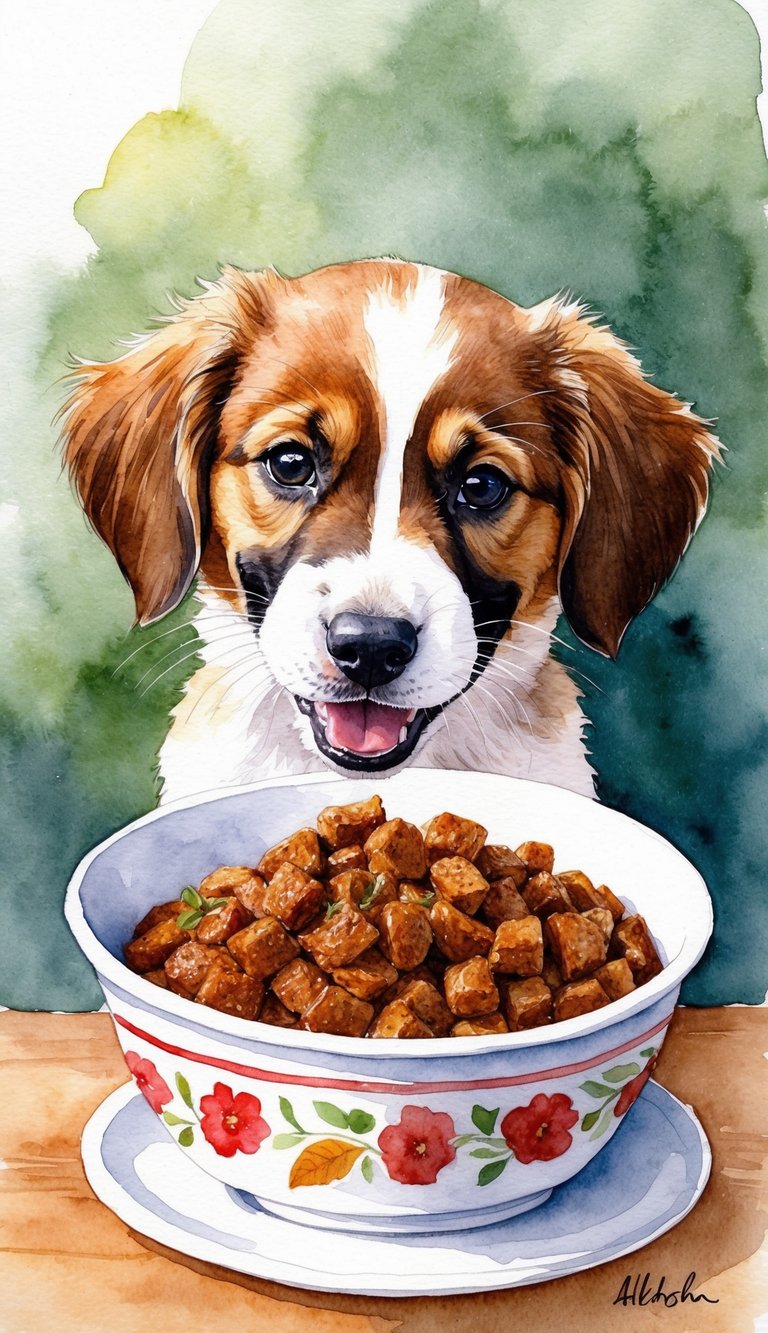
Feeding your Akbash puppy homemade food means you pick what goes into each meal. You get to avoid unwanted additives and better fit your puppy’s needs.
Control Over Quality and Ingredients
When you make your puppy’s food at home, you can use 100% human-grade ingredients. You know exactly where each item comes from and how fresh it is.
You can skip fillers, by-products, and weird additives found in some store-bought foods. Using whole-food ingredients like chicken, rice, carrots, or sweet potatoes gives you full control.
You can tweak the diet as your puppy grows or if they have special needs. If your Akbash has allergies, homemade food makes it easy to avoid problem foods.
A simple list of ingredients you might use:
- Boneless chicken breasts
- Brown rice
- Peas and carrots
- Fresh spinach
- Eggs
This way, you know the food is fresh and safe.
Supporting Sensitive Stomachs
Akbash puppies sometimes have sensitive stomachs and might struggle with some commercial foods. Making food at home lets you pick gentle, easy-to-digest whole-food ingredients.
Without artificial colors, flavors, or chemicals, your puppy is less likely to react. Homemade recipes often use plain proteins and grains, so it’s easier to figure out what’s causing any issues.
If your puppy has food allergies, you can leave those ingredients out entirely. You can also change things up fast if a new food causes problems.
Preparation for Picky Eaters
Akbash puppies can be picky eaters. With homemade food, you can adjust recipes to match your puppy’s tastes.
Try different meats, grains, and veggies until you find a combo your puppy likes. If your puppy turns away from dry kibble, fresh human-grade ingredients may be more appealing.
Serving lightly cooked meat, soft rice, and tender veggies can make meals more tempting. This helps cut down on wasted food and encourages a healthy appetite.
Choosing the Right Proteins
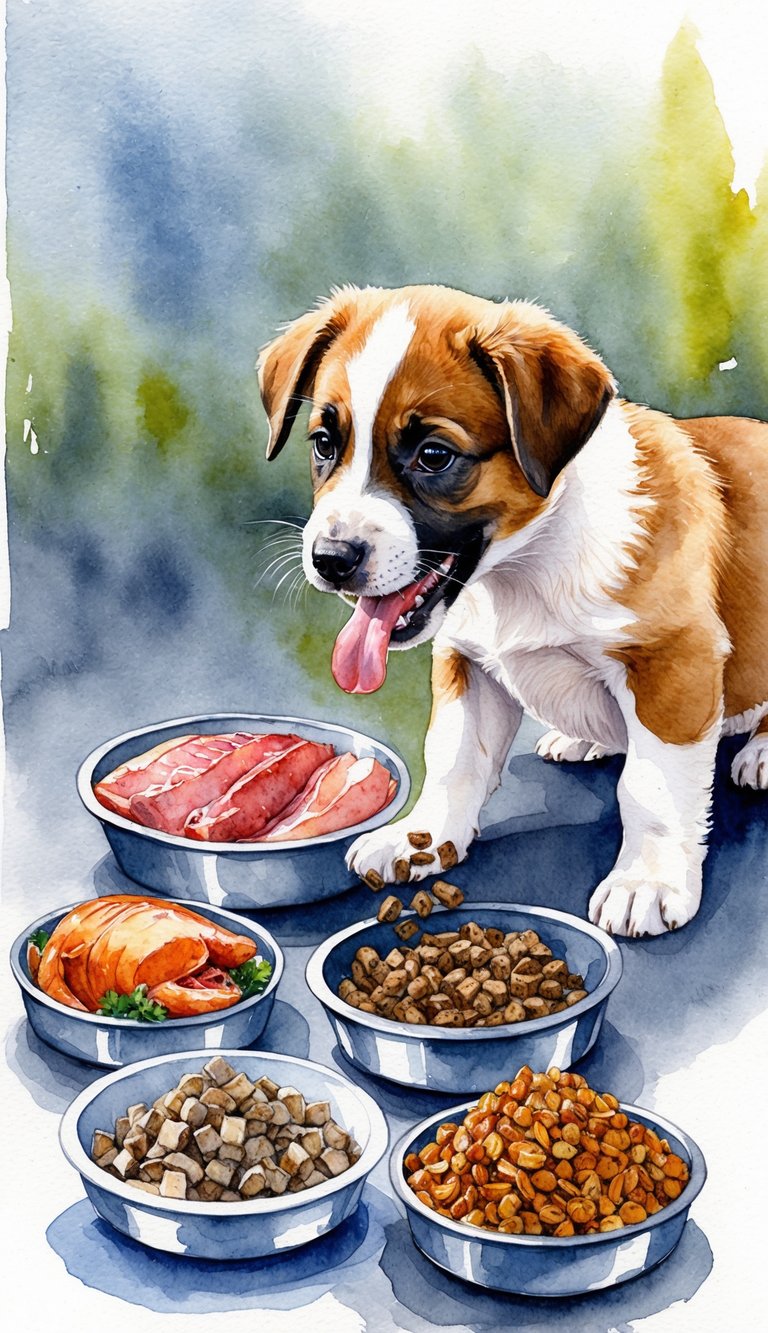
Choosing healthy proteins is key for your Akbash puppy’s growth and energy. Each meat brings different nutrients and can affect digestion or allergies.
Chicken and Turkey Options
Chicken and turkey are favorites for many puppies. These lean meats are easy to digest and pack in quality protein.
Use fresh chicken breasts or ground turkey in meals. Cook the meat thoroughly—raw poultry can carry nasty bacteria.
Remove bones and extra fat before serving. Both meats offer vitamins like B6 and niacin, plus minerals like phosphorus and selenium.
Mixing white and dark meat adds variety. If your puppy can’t handle chicken, turkey is usually a gentler option.
Switching between the two can help prevent food sensitivities.
Including Salmon and Venison
Salmon is a solid source of omega-3 fatty acids, which support skin, coat, and joint health. Always cook salmon to kill parasites and bacteria.
Venison is another good protein, especially for puppies with allergies. It’s lean, digestible, and high in iron.
Try salmon or venison once or twice a week to add variety and important nutrients. If you use canned salmon, pick options without added salt and remove any bones.
For venison, cook it well and cut into small, puppy-sized pieces.
Pork and Novel Protein Choices
Pork is a rich protein many dogs enjoy. Choose lean cuts like pork loin, trim the fat, and cook it fully.
Novel proteins like duck, lamb, or rabbit can help if your puppy develops allergies to common meats. Introduce new proteins slowly and keep an eye out for reactions.
A quick table of novel proteins:
| Protein | Example Use | Benefits |
|---|---|---|
| Duck | Cooked breast or thigh | Rich in iron, novel for most dogs |
| Lamb | Ground or stew meat | High in zinc, supports digestion |
| Rabbit | Cooked fillet | Very lean, low allergy risk |
Rotating proteins keeps your Akbash puppy’s diet balanced and interesting.
Grain-Free and Gluten-Free Alternatives
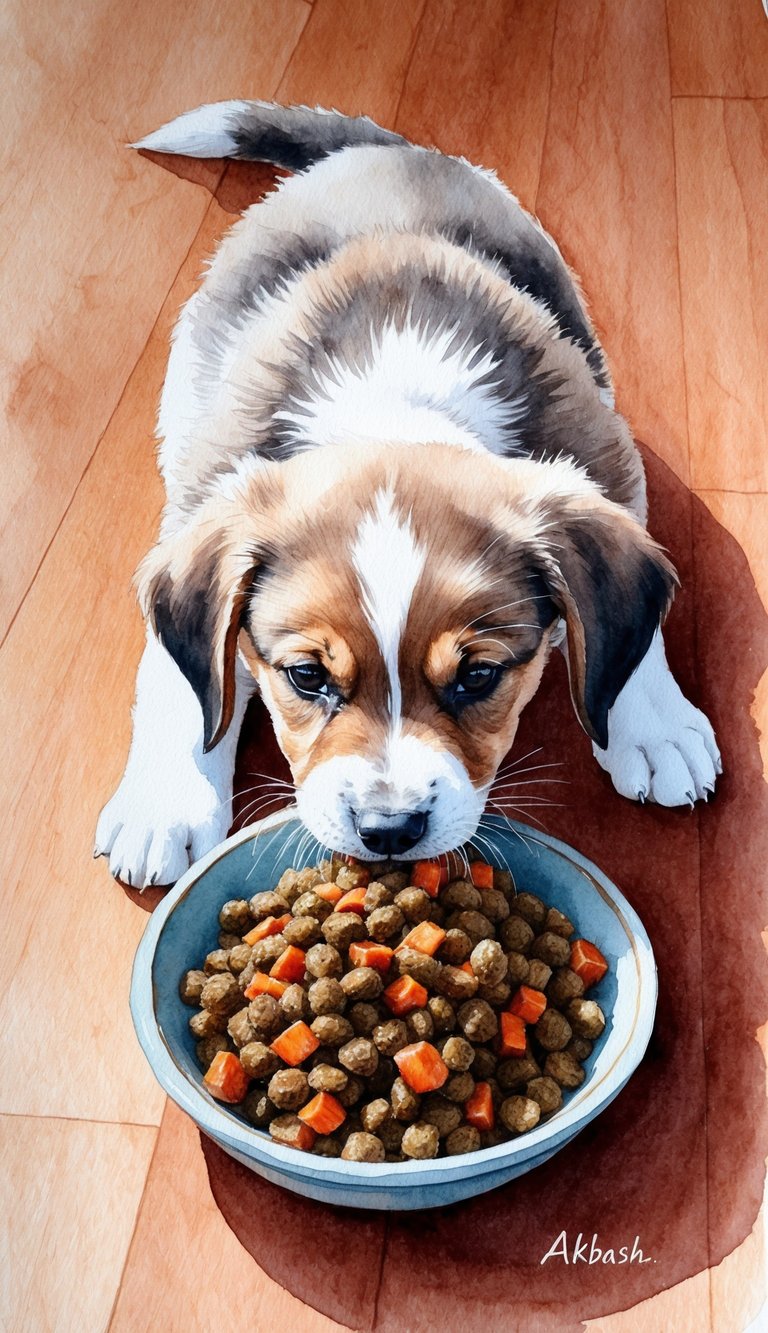
Some Akbash puppies just can’t handle grains or gluten. You can still give your puppy balanced meals without these ingredients.
Selecting Digestible Carbohydrates
If you’re skipping grains and gluten, go for easy-to-digest carbs. Sweet potatoes, peas, and carrots are gentle on most bellies and bring vitamins and fiber.
Table: Common Grain-Free, Gluten-Free Carbohydrates for Puppies
| Ingredient | Key Nutrients | Preparation Tips |
|---|---|---|
| Sweet Potatoes | Beta-carotene, Fiber | Cook and mash for easy eating |
| Peas | Protein, Fiber | Steam until soft |
| Carrots | Vitamin A, Fiber | Grate or finely chop |
Sweet potatoes can stand in for rice or oats. Peas and carrots blend well into purees.
Always cook veggies well so your puppy can digest them easily.
Benefits of Pumpkin and Yogurt
Pumpkin is loaded with fiber and helps with healthy digestion. It’s grain-free and gluten-free, so it’s safe for sensitive pups.
Use plain, cooked pumpkin—skip anything with sugar or spices. Yogurt is another gut-friendly option.
Pick plain, unsweetened yogurt with no flavors added. Yogurt offers probiotics, which are good bacteria for your pup’s digestion.
List of benefits:
- Pumpkin: gentle on digestion, adds natural fiber
- Yogurt: has probiotics, may help with food absorption
Add new foods one at a time and watch for any weird reactions. If you’re unsure, ask your vet before making pumpkin or yogurt a regular thing.
Preparing a Balanced Homemade Puppy Food Recipe
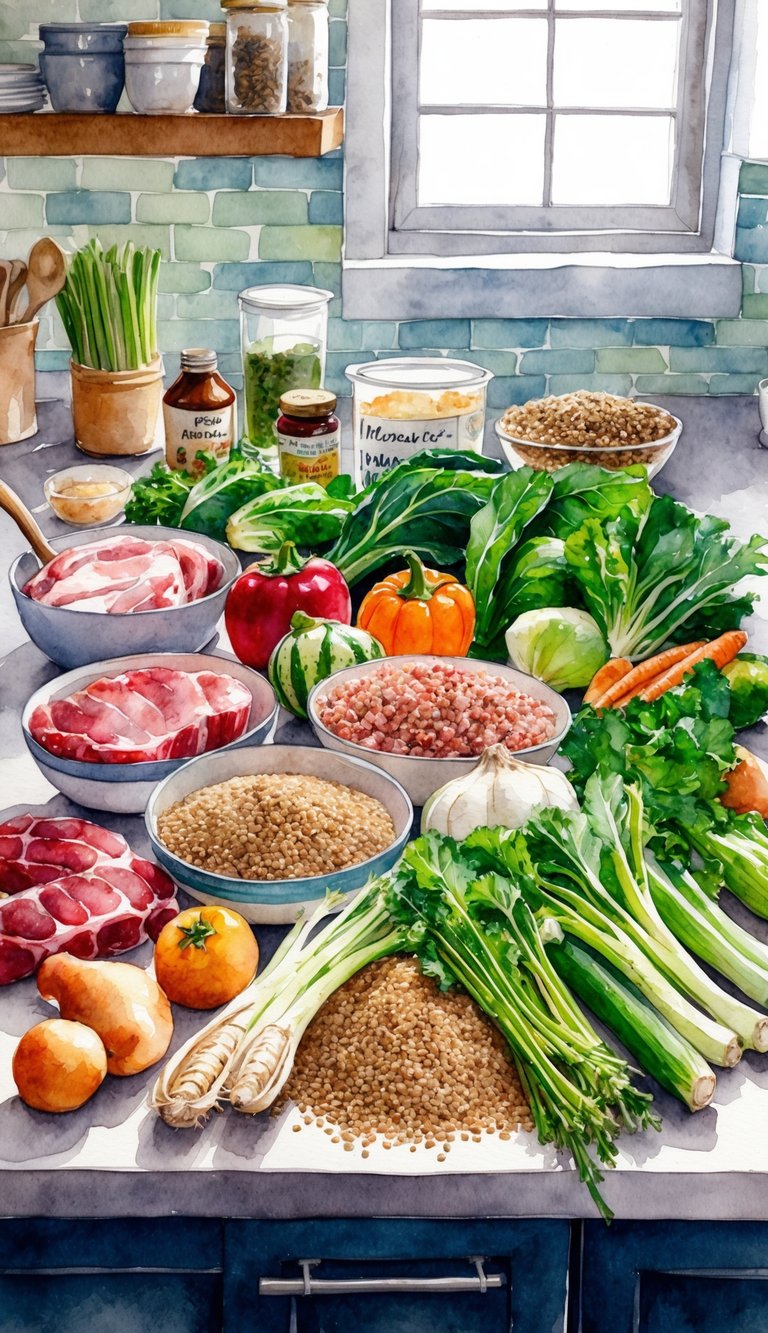
When making food for your Akbash puppy at home, focus on meeting all their nutritional needs. Use clear portions, safe ingredients, and proper prep methods to help your puppy grow up healthy.
Incorporating a Nutrient Blend
Puppies need balanced meals with protein, fat, carbs, vitamins, and minerals. If you’re not following a vet-formulated dog food recipe, it’s important to add a tested nutrient blend to your mix.
Most home-cooked meals for dogs don’t provide enough calcium, phosphorus, or certain vitamins unless you use a blend made for puppies. Pick blends labeled “complete” or “balanced.”
Products like JustFoodForDogs or your vet’s favorites are good places to start. Read the directions for how much blend to add per pound of food.
Key nutrients your puppy needs:
- Protein (chicken, beef, fish)
- Healthy fat (salmon oil, chicken fat)
- Carbohydrates (rice, oats, sweet potato)
- Vitamins A, D, E, B-complex
- Minerals (calcium, phosphorus, magnesium)
A kitchen scale helps you measure ingredients accurately.
Using 100% Human-Grade Ingredients
Akbash puppies can be pretty sensitive to low-quality food. Always go for 100% human-grade ingredients when making their meals.
Buy meat, veggies, and grains you’d feel comfortable eating yourself. Skip animal byproducts, preservatives, and fake flavors.
Cook meats thoroughly to kill any bacteria. Rinse veggies well. Take out bones or seeds that could choke your pup.
Label and store homemade food in sealed containers in the fridge. Try to use food within a few days to keep things fresh.
Shopping list example:
- Fresh chicken breast or beef
- Unseasoned brown rice
- Spinach, carrots, green beans (chopped small)
- Sunflower or fish oil for healthy fat
Homemade Raw Egg Additions
Some folks toss raw egg into homemade meals for extra protein. Raw egg brings B vitamins, protein, and selenium, but it’s not without risk.
Salmonella and biotin deficiency are possible if you go overboard. If you’re adding eggs, pick fresh ones from a source you trust.
Wash the shell if you’re including it for calcium, or just use the yolk and white. Stick to 1–2 eggs per week for a medium or large puppy.
Watch for any stomach issues. Cooking the egg can lower health risks while keeping most of the good stuff.
Raw vs. Cooked Food for Akbash Puppies
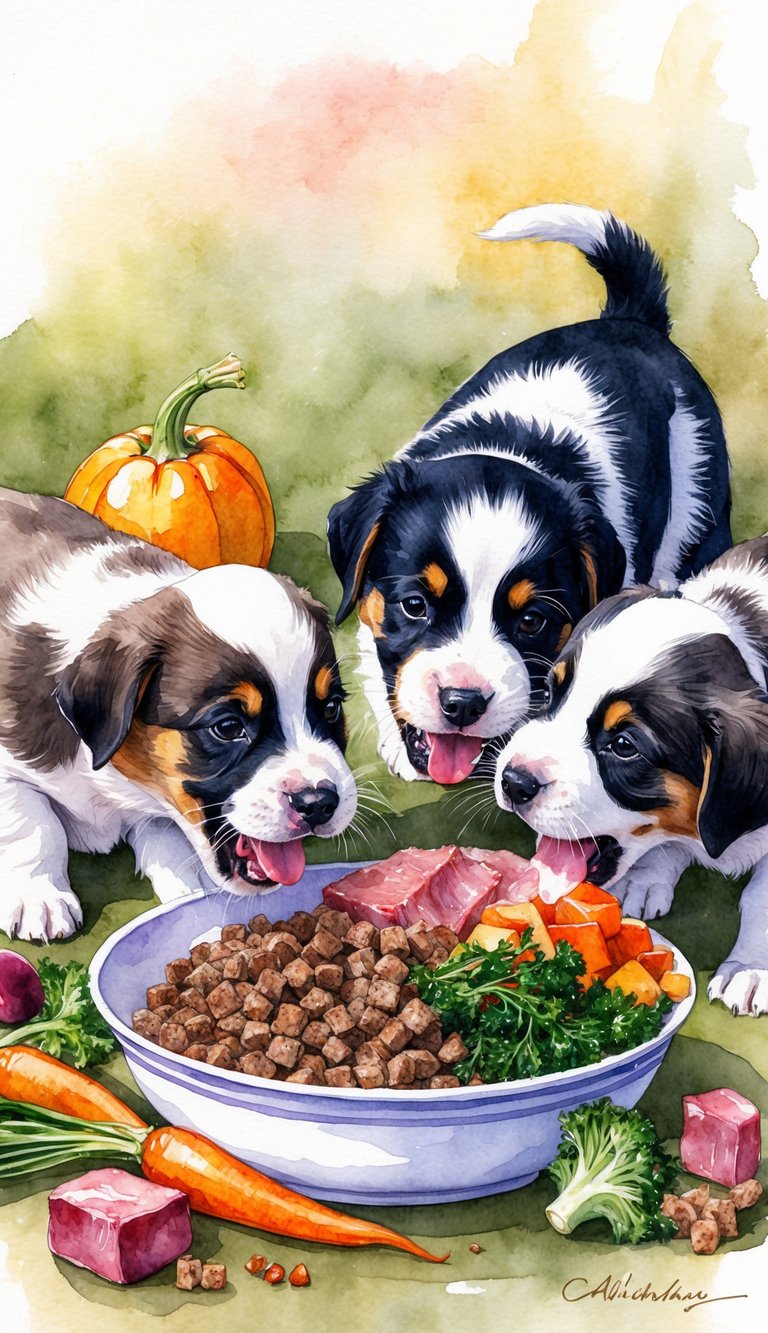
People debate raw versus cooked food for Akbash puppies all the time. The choice really comes down to nutrition, safety, and what fits your life.
Advantages and Considerations of Raw Food
Raw diets usually include raw meat, bones, organs, and sometimes fruits or veggies. Some owners swear raw food keeps teeth clean and helps build muscle.
Raw meat packs a punch with protein and amino acids. But it can also carry bacteria like Salmonella or E. coli, which isn’t great for puppies or anyone handling the food.
Young puppies have sensitive stomachs and weaker immune systems than adults. Feeding raw bones can break teeth or cause choking.
Always wash your hands and clean surfaces after touching raw meat. You’ll probably need to add supplements if you go raw—things like calcium or vitamins.
Talk to your vet before making a big switch.
| Benefit | Risk |
|---|---|
| More natural ingredients | Bacteria in raw meat |
| Fewer preservatives | Possible unbalanced nutrition |
| May support healthy teeth | Choking on or injury from raw bones |
Cooking Methods for Homemade Meals
Cooking meat and veggies before you feed them to your Akbash puppy helps kill bacteria. Steaming, boiling, and baking are the main methods.
These ways keep a lot of nutrients while making food safer. Cooked food can be easier for some puppies to handle.
Bake meat in the oven or boil chicken on the stove—both work well. Don’t fry, and skip added spices, salt, onions, or garlic; those can make your puppy sick.
Always cook food all the way through. Undercooked meat still carries risk. Let food cool to room temp before serving so you don’t burn your pup’s mouth.
Tips for cooking homemade puppy meals:
- Never use cooked bones; they splinter easily
- Measure portions to prevent overfeeding
- Mix grains and veggies for a more balanced meal
Ask your vet for recipe ideas and advice on supplements. Introduce new foods slowly to avoid upsetting your puppy’s stomach.
Adapting Homemade Meals for Allergy and Sensitivity Concerns
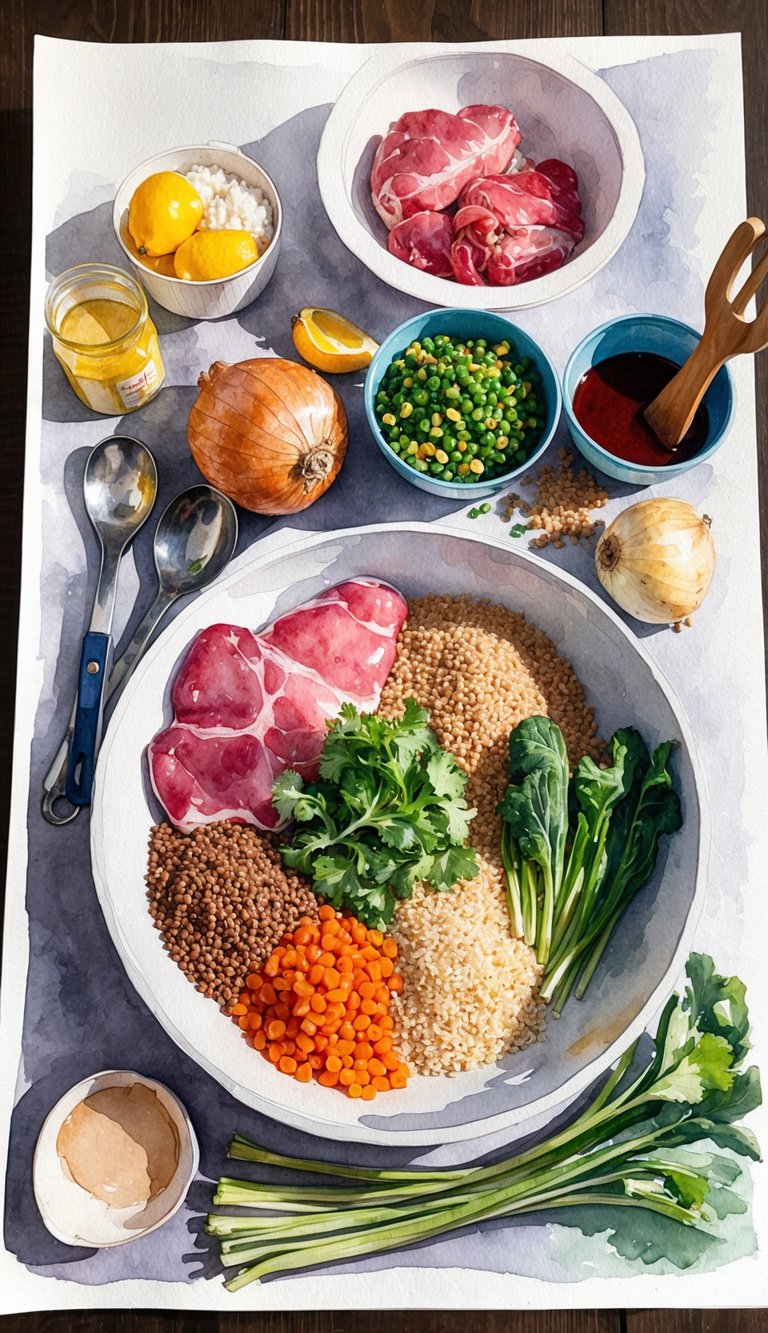
A lot of Akbash puppies have sensitive stomachs or food allergies. Picking the right ingredients makes a real difference at mealtime.
Identifying Common Allergens
Even homemade food can have stuff that bugs your puppy’s digestion. The usual suspects are beef, chicken, dairy, wheat, soy, and eggs.
If you notice itching, paw chewing, ear infections, vomiting, or diarrhea, food allergies might be the problem. Try removing common allergens one at a time.
Keep a food log to spot what sets your puppy off. Adding plain pumpkin can help with fiber and soothe sensitive stomachs—plus, it’s rarely an allergen.
Avoid table scraps and processed snacks with sneaky ingredients. Always read labels before giving treats or supplements.
Utilizing Novel Proteins for Sensitive Puppies
Switching to novel proteins can help if your Akbash puppy reacts to the usual meats. Novel proteins are basically meats your puppy hasn’t tried before, like ground turkey, duck, rabbit, or even yak.
Ground turkey is a good starting point because it’s mild and less likely to cause issues. Yak isn’t common, but it’s an option for really sensitive pups.
Tips for feeding novel proteins:
- Offer the new protein on its own first.
- Wait a few days before adding anything else.
- Pair with safe foods like pumpkin to help with digestion.
Ask your vet before changing up proteins. Watch for signs of intolerance, like vomiting or diarrhea, when you try something new.
Feeding Guidelines and Portion Sizes
Akbash puppies need balanced meals for healthy growth. Feeding the right amount at the right times helps keep your puppy at a healthy weight.
Daily Calorie Needs
Akbash puppies burn a lot of energy, so they need more calories per pound than adults. Generally, puppies between 8–16 weeks need about 50–55 calories per pound each day.
For example, a 20-pound puppy will need about 1000–1100 calories daily. As your puppy grows, calorie needs per pound drop.
At six months, most eat 35–40 calories per pound. Adult Akbash dogs usually need 20–25 calories per pound.
Adjust portions based on your puppy’s age, activity, and growth. Keep an eye on weight and body shape. If your puppy starts gaining or losing too much, tweak the calories a bit.
A quick look at calorie needs:
| Age | Calories per Pound |
|---|---|
| 8–16 weeks | 50–55 |
| 4–6 months | 40–45 |
| 7–12 months | 35–40 |
| Adult | 20–25 |
Meal Frequency and Schedules
Young Akbash puppies do best with 3–4 small meals a day. Spacing out meals helps with digestion and keeps their energy up.
By four months, you can drop to three meals a day. At six months, most puppies are fine with two meals. Adult Akbash dogs stick with two meals per day.
Try to feed around the same times every day—morning, afternoon, and evening work well. A routine helps your puppy build good eating habits and makes it easier to spot changes in appetite.
Use a kitchen scale or measuring cup for portions. Treats should be less than 10% of daily calories, or you risk overfeeding. Always have fresh water out.
Transitioning Akbash Puppies to Homemade Food

Switching your Akbash puppy from kibble to homemade food takes a little patience. Go slow to help their digestion adjust and avoid stomach problems.
Step-by-Step Transition Process
Start by mixing a small amount of homemade food into your puppy’s regular kibble. A good place to start is 75% old food and 25% new food.
Over the next 7–10 days, gradually up the homemade portion and lower the kibble. Here’s a simple guide:
| Days | Old Food | Homemade Food |
|---|---|---|
| 1-3 | 75% | 25% |
| 4-6 | 50% | 50% |
| 7-10 | 25% | 75% |
| 11+ | 0% | 100% |
Feed at set times each day. Don’t rush the transition—changing foods too fast can cause diarrhea or vomiting, especially in big breeds like Akbash.
Monitoring Health and Digestion
Watch your puppy for any changes in stool, energy, or appetite. Healthy digestion usually means your pup has firm stools and stays playful.
If you notice loose stools, bloating, or extra gas, slow down the transition. If your puppy seems tired, it’s probably best to check in with your vet.
Keep a simple log. Note daily:
- Stool consistency
- Eating habits
- Behavior or energy changes
Compared to Great Pyrenees or Pyrenees breeds, Akbash puppies might react more to sudden changes in diet. Early signs of trouble? Don’t brush them off.



